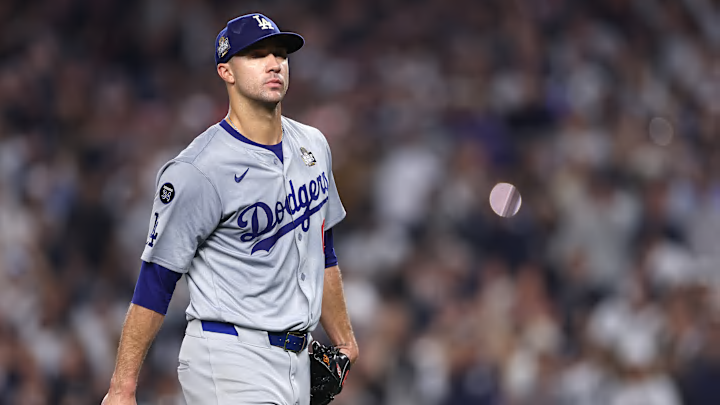Adding another starting pitcher to their rotation appears to be the top remaining priority for the Chicago Cubs this offseason.
While there was a brief period of time last month where it seemed that Jesus Luzardo would be the addition to the Cubs' rotation, trade talks with the Miami Marlins. The Marlins proceeded to trade Luzardo to the Philadelphia Phillies.
On the surface, the Cubs remain involved in the sweepstakes for Roki Sasaki but every indication is that Sasaki will sign with a West Coast team. The Los Angeles Dodgers, San Diego Padres, and San Francisco Giants are the rumored favorites for Sasaki.
Combining the impression of the Cubs seemingly falling out of the picture in the Sasaki sweepstakes, and a need still to be addressed, this nugget from Mark Feinsand of MLB dot com shouldn't be overlooked.
In talking abut Jack Flaherty's free agency, Feinsand notes "a number of other teams remain in the mix for Flaherty including the Giants, Blue Jays, Tigers, and Cubs".
After returning to top-of-the-rotation form while splitting the 2024 season with the Detroit Tigers and Los Angeles Angels, The Athletic has Flaherty in line for a four-year deal worth $92MM.
Jack Flaherty would signal the Cubs going outside of their comfort zone.
The type of contract that Flaherty is projected to receive this offseason is one that the Cubs have avoided in recent seasons. Of course, Flaherty does offer the Cubs more certainty than they had at the time of the signings of Shota Imanaga, Marcus Stroman, and even Jameson Taillon in recent offseasons. With the 2025 season serving as a variation of an "all-in" year for Jed Hoyer, Flaherty could fall into that picture.
The Cubs remaining in the mix for Flaherty does seem to confirm that the front office may be angling toward fallback moves for when they have official confirmation they won't be signing Sasaki. If that is the case, the Cubs may pivot back to the trade market instead of spending on a pitcher like Flaherty. While not discrediting the idea of Flaherty, it seems that the Cubs are more willing to spend in prospect capital than they are free-agent capital.
